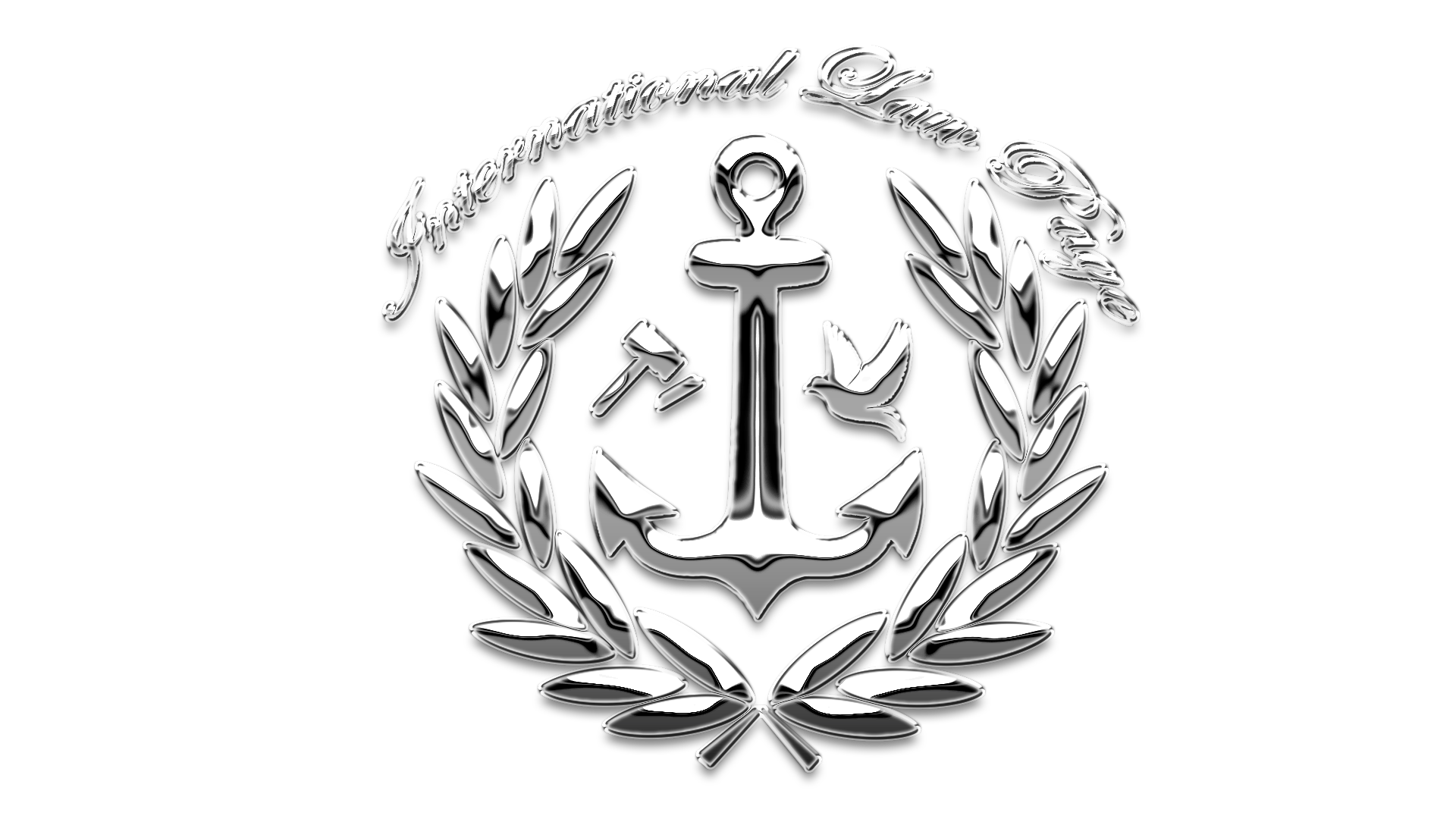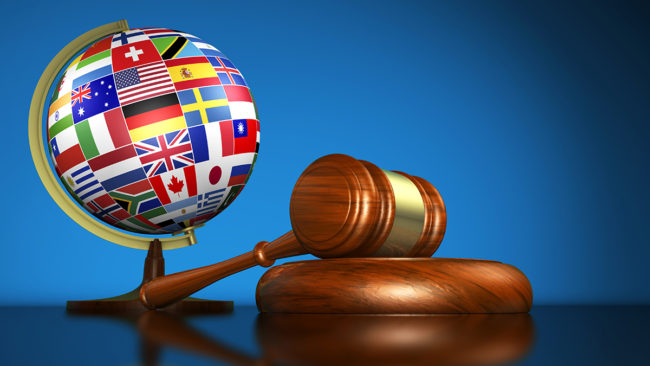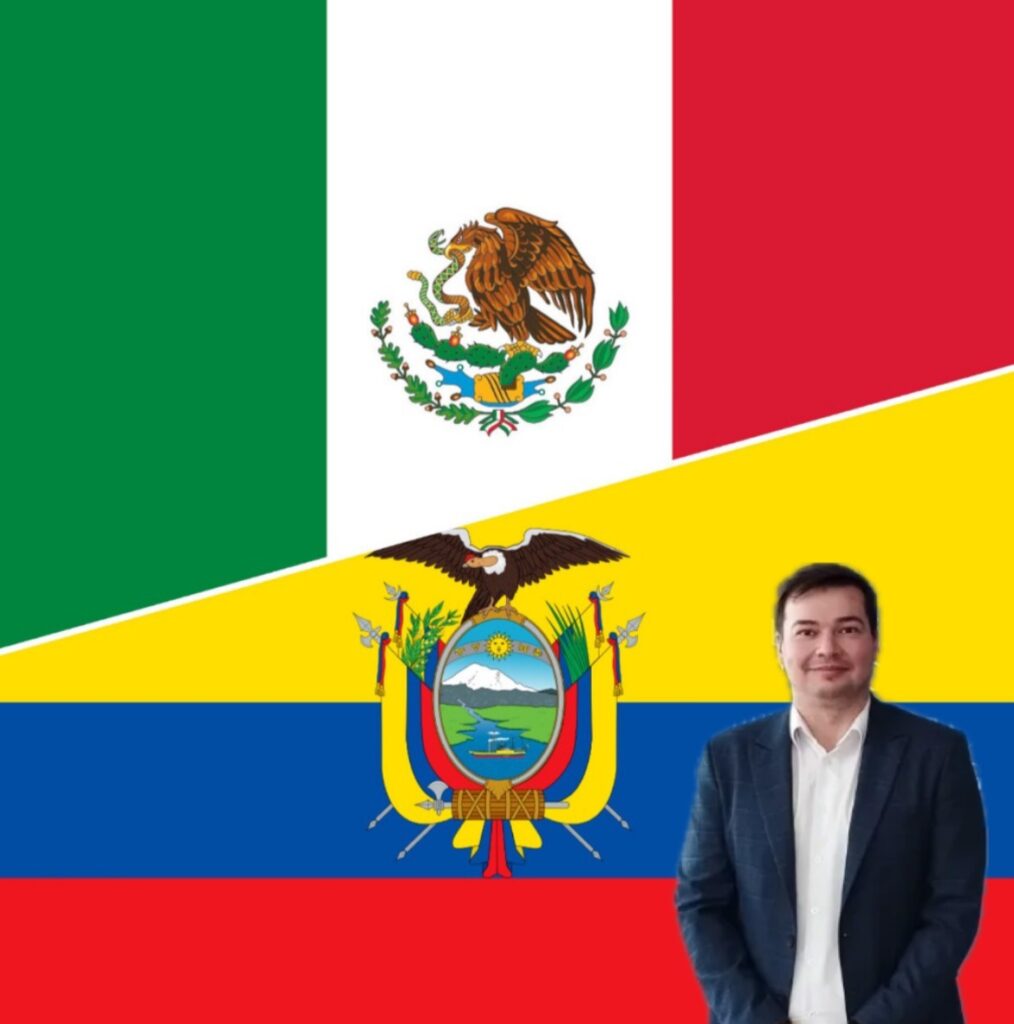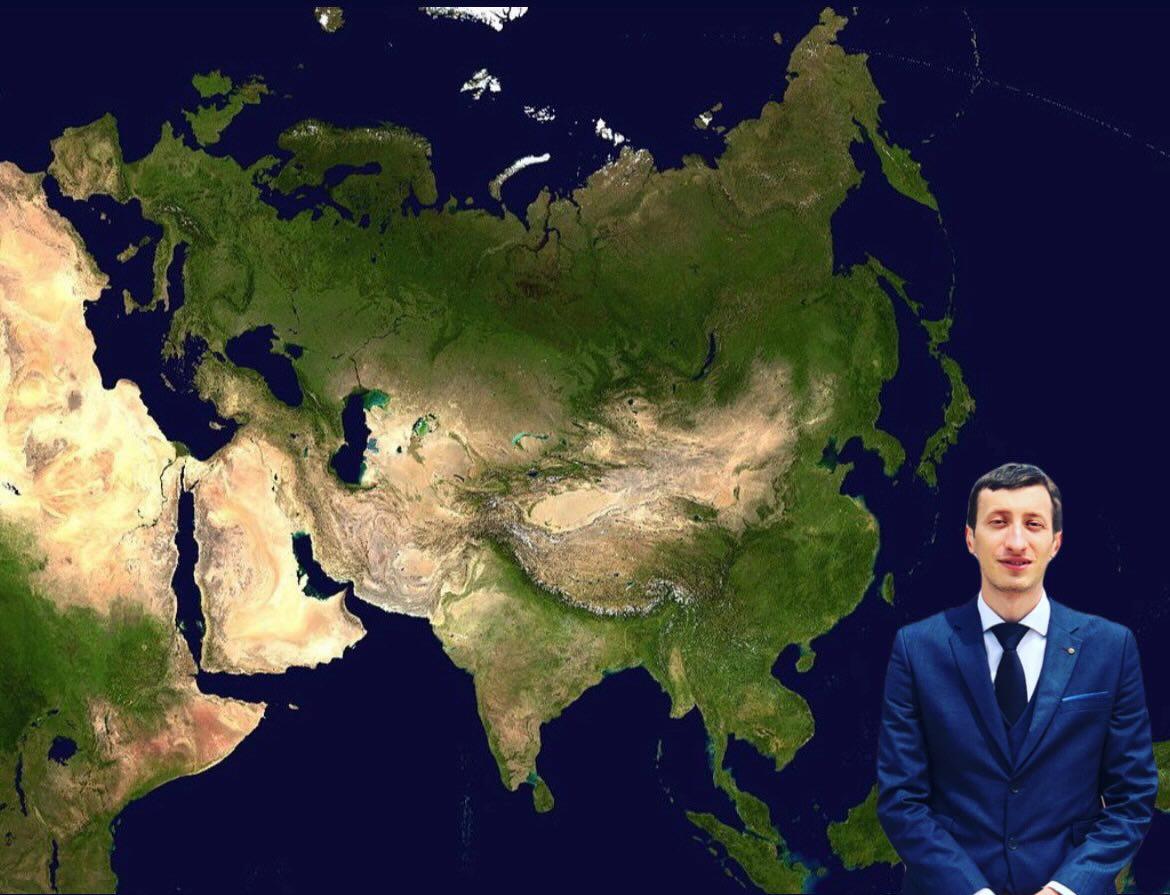written by LL.M. Lotfi Ghouma
During the last years, many countries around the world have witnessed a significant increase in extremist terrorist attacks, which take various forms, whether carried out by radical Islamic groups or far-right extremist groups. These attacks have not only posed a threat to national security but have also acted as a catalyst for the emergence of new political movements, especially in Europe and America, where far-right parties have made significant gains in the political arena.
Terrorism, according to the United Nations Declaration on International Terrorism (1999), is defined as “any act of violence targeting civilians or civilian facilities to create fear or influence the internal or external policies of states.” The United Nations Convention on the Financing of Terrorism (1999) also defines terrorism as “acts of violence intended to coerce a government or international organization into complying with certain demands.” Extremism is defined by the Council of Europe’s Special Group on Combating Extremism as “an absolute adherence to political or religious beliefs that lead to violence, racism, or rejection of cultural diversity.” According to the U.S. Center for Combating Terrorism, extremism is defined as “intellectual tendencies characterized by the rejection of opposing views or equality among individuals based on their religious or ethnic beliefs.”
Far-right extremist parties are political groups that adopt an aggressive nationalist rhetoric, oppose immigration policies and cultural pluralism, and promote traditional values at the expense of civil rights. According to reports by the European Commission, these parties are defined as “following extreme nationalist policies, opposing immigration policies, and promoting traditional values at the expense of cultural pluralism and civil rights.” The Friedrich Ebert Foundation in Germany defines far-right extremism as “a political ideology that calls for cultural isolation, rejects other identities and religions, and often includes hate speech against immigrants and minorities.”
In this context, several issues arise, such as: What are the motivations behind terrorist operations? What is the relationship between the increase in extremist terrorist attacks and the rise of far-right extremist parties on the international political stage? And what are the legal and human rights impacts of the rise of far-right parties?
Extremist terrorist attacks pose a threat to the security and stability of many countries. These attacks are often exploited by far-right extremist parties to bolster their anti-immigration and anti-cultural pluralism rhetoric and to present themselves as defenders of national identity against external threats.
Terrorist operations are complex phenomena that affect societies and countries around the world. The motives behind these operations are diverse, and it is impossible to attribute them to just one cause. Terrorism is typically the result of the intersection of various political, social, religious, and economic factors. One of the most prominent reasons behind terrorist operations is the political motive, where some groups seek to achieve specific goals through violence to bring about political change, such as overthrowing governments or imposing extremist regimes. In many cases, individuals and groups complain about repression and social and political injustice, which makes them feel the need for revenge or to bring about radical change. For instance, Al-Qaeda used violence as a means to achieve political goals, particularly opposing Western dominance over the Arab and Islamic world.
Religious motives are also among the main driving forces behind many terrorist operations. Sometimes, individuals or extremist groups adopt narrow interpretations of religion and view violence as a way to implement their beliefs or achieve the concept of “jihad.” ISIS is a prominent example of this, as it used religion as a tool to justify its brutal actions in Iraq and Syria, targeting innocent people and civilian communities under the pretext of spreading the Islamic caliphate. These groups believe that violence is the only way to achieve their religious and political objectives.
In addition to political and religious motives, economic factors play a significant role in the rise of terrorism. In some cases, individuals face difficult economic conditions, such as poverty and unemployment, making them vulnerable to exploitation by extremist groups. These groups often lure individuals, especially the youth, with recruitment offers that promise financial gain or social status in exchange for engaging in terrorist activities. Somalia and countries in West Africa are examples of this type of terrorism, where harsh economic conditions lead some individuals to feel forced to join extremist groups to improve their situation.
Often, the reasons for extremism go beyond political or economic factors and extend to social and psychological motives. Youth who suffer from social isolation or feel marginalized by society may be more susceptible to joining extremist groups. In these cases, these groups provide a sense of belonging and self-worth. In Nigeria, for example, Boko Haram is one of the groups that attracts young people suffering from poverty and social deprivation, guiding them toward adopting extremist ideas.
When discussing past terrorist operations, we must refer to the September 11, 2001 attacks in the United States, carried out by Al-Qaeda against American civilian and military targets, resulting in the deaths of around 3,000 people. These attacks marked a turning point in the history of contemporary terrorism, leading to a strategic shift in U.S. and global policies, including the wars in Afghanistan and Iraq as part of the War on Terror. Likewise, the bombing of the U.S. embassy in Beirut in 1983, carried out by Hezbollah, resulting in the deaths of many American diplomats, marked the beginning of a new phase of terrorism supported by ideological groups.
As for modern terrorist operations, the 2015 ISIS attacks in Paris are among the most significant examples of contemporary terrorism. A group of attackers carried out a series of attacks at multiple locations in the French capital, killing 130 people. The attack had a major impact on Europe, increasing fears of the spread of terrorism in Western countries. Similarly, the 2017 suicide bombing in Manchester, UK, during a concert, which killed 22 people, highlighted that terrorist organizations are no longer limited to attacking in the Middle East but have extended to Western capitals.
Terrorist operations have significantly increased in recent years due to the development of social media, which has become a tool for recruitment and propaganda. These platforms have become a venue for spreading extremist ideologies and motivating individuals to carry out terrorist attacks. Through the internet, extremist groups can easily spread their messages, enhancing their ability to attract new members from around the world. Political divisions and ethnic conflicts in some countries also contribute to the rise of terrorism. In this complex scenario, combating terrorism and extremism remains one of the greatest challenges facing global societies.
In conclusion, terrorist operations are not isolated from the political and social contexts in which they arise. They result from the interaction of various factors, including political repression, difficult economic conditions, and social transformations. With the increasing influence of the internet and social media in spreading extremist ideologies, addressing this phenomenon requires coordinated international efforts, including addressing the root causes of extremism, as well as strengthening security and military cooperation between countries.
The increase in terrorist attacks in recent years is intricately linked to the rise of far-right parties in many European and global countries, including the United States. Far-right extremist parties, which adopt anti-immigration and anti-minority rhetoric, often see terrorist attacks as an opportunity to fuel fear and anxiety among the population. These parties exploit terrorist incidents to increase their public support by presenting themselves as protectors of national security and opponents of external threats, such as immigration and terrorism.
One of the key factors connecting the rise in terrorist attacks and the rise of far-right parties is the public response to these attacks. When terrorist attacks occur, especially those linked to radical Islamic groups, fear of the “other” rises among certain segments of society. This fear can lead to increased support for parties that advocate for tough policies against migrants and Muslims, such as imposing immigration restrictions or adopting stricter counter-terrorism laws. Far-right parties take advantage of this charged atmosphere to attract voters who feel insecure or anxious about different cultural and religious identities.
At the same time, these parties seek to portray terrorist attacks as part of a larger threat related to the waves of immigration their countries are receiving. For example, some right-wing parties promote the idea that terrorist attacks are closely linked to the increasing number of migrants from Islamic regions, reinforcing the notion that immigration poses a threat to cultural and social security. This rhetoric exacerbates tensions between local communities and migrants, contributing to rising hostility and discrimination against minorities.
Right-wing parties also benefit from terrorist attacks to justify their repressive policies. At times, terrorist attacks are used as a pretext to enhance security powers and reduce civil liberties, such as enforcing anti-terrorism laws that may restrict freedom of expression or impose tight surveillance on migrants and diverse communities. These policies may receive support from a wide segment of the population who feel that protecting national security requires sacrificing some individual rights.
On the other hand, terrorist attacks can fuel hostility towards Islam and Muslims, especially when the attacks are linked to extremist groups such as ISIS or Al-Qaeda. In this context, right-wing parties exploit these attacks to increase their support by focusing on the idea that these attacks are a result of extremist religious teachings, furthering their negative views of Muslims in general. This contributes to the rhetoric that considers Islam as a cultural enemy, increasing feelings of fear and rejection toward these groups.
Conversely, the rise of right-wing parties can sometimes contribute to an increase in terrorist attacks. Some extremist groups may see the escalation of hard-right rhetoric as an incentive to carry out more attacks as a way to respond to what they perceive as threats against their religious and cultural identity. This strengthens the vicious cycle between extremism on both sides, with right-wing extremist groups becoming more rigid in their positions, while terrorist groups retaliate against what they perceive as an attack on their culture or religion.
Far-right parties in Europe play a major role in enhancing this tense climate. Among the most prominent leaders of these parties in Europe is Marine Le Pen, the leader of the French National Rally, which has become one of the leading far-right parties in France. Le Pen is one of the strongest critics of immigration and Islam and has adopted an anti-Muslim and anti-immigrant discourse. She advocates for strict immigration laws and opposed the European Union’s policy on open borders.
In Italy, there is Giorgia Meloni, leader of the “Brothers of Italy” party, which has gained increasing popularity in recent years. Meloni, who became Italy’s Prime Minister, promotes an anti-immigration and anti-Islam agenda, viewing illegal immigration as a threat to Italian security. She also embraces a strong nationalist policy and calls for restructuring the European Union to align with the interests of European nations.
In Italy as well, Matteo Salvini leads the “League” party, which has become a prominent face of the far-right currents in his country. Salvini is firmly opposed to immigration, seeing it as a threat to Italian identity, and played a major role in implementing strict policies against migrants during his tenure as Interior Minister.
In Austria, Heinz-Christian Strache leads the “Freedom Party of Austria,” which is considered one of the most prominent far-right parties in the country. Strache promotes policies opposing immigration and the European Union, as well as adopting rhetoric that stirs racial and religious divisions, exploiting fears of terrorism to increase his party’s popularity.
In the Netherlands, we find Geert Wilders, leader of the Dutch Freedom Party, who continues to criticize Islam and immigration from Islamic countries. Wilders is one of the most vocal opponents of immigration and tries to exploit terrorist attacks to reinforce his views on the threats posed by radical Islam.
In Germany, Friedrich Merz, leader of the Christian Democratic Union, recently won in the federal elections along with the “Alternative for Germany” (AfD) party. Although Merz is a conservative figure within his party, AfD promotes anti-immigration policies and calls for more stringent counter-terrorism measures, especially in light of the rising threat of extremism in the country.
Additionally, international figures have played a role in boosting the rise of far-right parties in the West. In the United States, Donald Trump, the current president, remains one of the most prominent supporters of far-right parties globally. Trump has presented an explicitly anti-immigration discourse, advocating for building a border wall with Mexico and attacking immigration agreements with other countries. He also leveraged Americans’ fears after the 9/11 terrorist attacks, using an anti-Islam and anti-refugee stance to bolster his popularity.
In Europe, Elon Musk, owner of companies like Tesla and SpaceX, has become one of the prominent figures indirectly influencing political currents, including the far-right, by supporting freedom of expression and offering a liberal perspective on many issues. Musk has publicly supported several conservative figures known for their hardline stances on immigration and liberal economic and environmental policies, thereby enhancing the political strength of parties adopting these positions.
The European Parliament has also seen a rise in support for the right, with far-right parties securing around 30% of votes in the most recent European parliamentary elections. This rise reflects increasing support for these parties in many European countries, which promote anti-immigration stances, reducing the influence of the European Union, and implementing stricter laws against what they see as cultural and terrorist threats. This growth in support for far-right parties reflects a shift in political trends across the continent, where the role of these parties in shaping future policies has been strengthened.
Right-wing parties also benefit from terrorist attacks to justify their repressive policies. At times, terrorist attacks are used as a pretext to bolster security powers and reduce civil liberties, such as enforcing anti-terrorism laws that might restrict freedom of expression or impose stringent surveillance on migrants and various communities. These policies can garner support from a broad segment of the population who believe that protecting national security requires sacrificing some individual rights.
In conclusion, the increase in terrorist attacks and the rise of far-right parties feed into each other, creating an environment of social and political tension. Far-right parties use terrorist attacks to intensify their anti-immigration and anti-Islam rhetoric, while terrorist groups may feel motivated to carry out more attacks in response to this escalating discourse. This complex interaction makes it difficult to address terrorism and extremism effectively without confronting the underlying causes of these phenomena, whether they are economic, cultural, or political.
The rise of far-right parties in many European and global countries deeply impacts the legal framework surrounding human rights, especially when balancing personal security with the preservation of fundamental freedoms like freedom of expression. In recent years, these parties have increasingly called for stricter legal measures to combat terrorism and extremism, leading to clashes between human rights and security measures, as well as between freedom of speech and hate speech.
Right-wing parties, which are gaining increasing popularity in many countries, often reinforce national security policies and tight surveillance in the face of terrorist threats and extremism. Under the banner of countering terrorism, these parties call for tougher laws against immigration and curbing individuals’ rights in civil society. This has led to direct impacts on individual rights, including restricting freedom of expression and expanding government powers to monitor individuals.
In light of the rising threats of terrorism and violent extremism, these policies have become more acceptable to large segments of society. However, the enforcement of counter-terrorism laws is facing criticism due to its potential infringement on fundamental rights. For instance, in some European countries, anti-terrorism laws have been strengthened to allow for extended detention of suspects without trial, which constitutes a violation of individuals’ right to a fair trial. Security agencies have also been granted greater powers to monitor people online and in public spaces, raising privacy concerns.
The balance between protecting human rights and ensuring national security is one of the most contentious issues of our time. Counter-terrorism measures, often justified based on safeguarding national security, can result in the restriction of basic rights such as freedom of movement, freedom of expression, and the right to privacy.
For example, in France, the recently issued “Global Security Law” allows security agencies to use digital surveillance techniques such as public camera monitoring, which could breach individuals’ freedom of movement. Additionally, France has imposed specific counter-terrorism laws that allow authorities to investigate individuals’ financial transactions and conduct financial surveillance to combat the funding of terrorism. While these measures may be necessary to combat security threats, they raise concerns about encroaching on citizens’ civil rights.
Freedom of expression has been notably affected in many countries with the rise of far-right parties, which often promote rhetoric targeting religious and ethnic minorities, whether against Muslims, refugees, or migrants. In this context, the legal challenge is how to preserve freedom of expression while combating hate speech and division.
A prominent example of this is Germany’s Hate Speech Law, which has been enforced strictly in recent years. This law aims to combat extremist and racist content online and allows the closure of accounts involved in spreading hate speech. On the other hand, some argue that this law could be used to restrict freedom of expression, especially when it concerns political or religious criticism.
In the United Kingdom, there are also growing concerns about the use of anti-terrorism laws to restrict freedom of expression. For instance, some individuals who expressed opposition to far-right parties or government policies regarding immigration have been accused of posing a threat to national security. In some cases, individuals were arrested for expressing political views, raising concerns about the restriction of freedom of speech.
Following the terrorist attacks in Paris, France adopted a law allowing authorities to impose exceptional measures to combat terrorism, including administrative detention and broad internet surveillance. These measures have been criticized for infringing on individuals’ rights to privacy and liberty.
Germany also passed the 2018 “NetzDG” law, which aimed at addressing hate speech online. This law obliges digital platforms like Facebook and Twitter to remove content violating hate speech laws within a short timeframe, raising questions about the boundaries of freedom of expression.
In the United States, Donald Trump, after taking office, launched the “Domestic Terrorism” policy, which expanded electronic surveillance and investigations into individuals deemed potential threats to national security. While this policy aimed at securing safety, it raised concerns about its impact on civil rights and freedoms of expression in the country.
The legal effects of the rise of far-right parties include an increase in the use of repressive measures against individual rights and fundamental freedoms. While some argue for the necessity of strong legal measures to combat terrorism and protect national security, others believe these measures lead to the restriction of basic human rights, especially freedom of expression. Moreover, the gap between combating hate speech and safeguarding freedom of expression remains one of the most problematic issues in this context, as governments must strike a delicate balance between ensuring security and upholding the fundamental freedoms that lie at the core of modern democracies.




